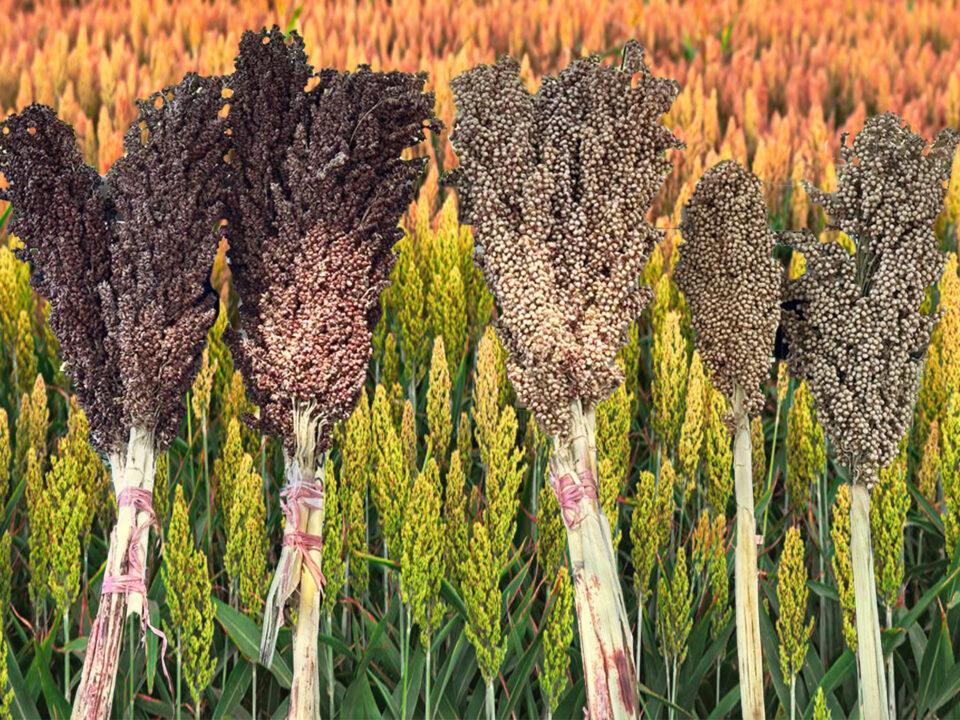Smallholder farmers, particularly in Zimbabwe’s drylands, are set to benefit from the introduction of the country’s first two Pearl Millet Hybrid varieties (PMH 1 and PMH 2) and two new Sorghum Hybrid varieties (SH1 and SH2). These innovations aim to tackle critical challenges such as climate change, food insecurity, and nutritional deficiencies.
Co-released by the International Crops Research Institute for the Semi-Arid Tropics (ICRISAT) in collaboration with the Government of Zimbabwe’s Crop Breeding Institute (CBI), these new hybrid varieties represent a significant advancement in enhancing food security and climate resilience. Developed to thrive in Zimbabwe’s semi-arid conditions, these hybrids offer significantly higher yields compared to the traditional open-pollinated varieties (OPVs) that local farmers have typically used.
In addition to their resilience to drought, these hybrid varieties present numerous opportunities to boost farmer incomes. They can be used for food production, animal feed, and industrial purposes, including brewing, creating a broad range of applications for agricultural products.
This release aligns with Zimbabwe’s policy to promote small grains as a foundational element for climate adaptation and food security. The milestone is also a key outcome of the Traditional Grains Conference in Bulawayo and the Smart Food Africa Initiative launch in Harare earlier this year.
Strategic Collaborations and Impact
The Honorable Dr. Anxious Jongwe Masuka, Zimbabwe’s Minister of Lands, Agriculture, Fisheries, and Rural Development, met with Dr. Stanford Blade, ICRISAT’s Director General-Interim, to emphasize the significance of strategic partnerships, innovative product development, and financial support. This collaboration has been essential in achieving this breakthrough for Zimbabwean agriculture.
Dr. Blade expressed the importance of this development: “The introduction of these pearl millet and sorghum hybrids is a breakthrough for Zimbabwean agriculture. Through cutting-edge science and innovation, we are providing farmers with the tools to tackle climate change and thrive.”
These hybrid varieties will also contribute to Zimbabwe’s school feeding programs. Pearl millet and sorghum are nutrient-rich grains, making them ideal for addressing malnutrition in schoolchildren. By incorporating these high-yielding, climate-resilient grains into school meal plans, the government can ensure a stable and nutritious food supply, even in periods of prolonged drought.
Key Features of the New Hybrids
Pearl Millet Hybrids:
- PMH 1 & PMH 2: Yield potential of 1.5–6.0 tons per hectare.
- Drought-tolerant, with semi-erect growth habits and strong lodging resistance.
- Suitable for both food and feed applications.
Sorghum Hybrids:
- SH1: High-yielding red grain hybrid (2.7–8.7 tons per hectare), ideal for brewing and food production.
- SH2: Versatile creamy white grain hybrid, suitable for food and animal feed.
Extensive Testing and Local Involvement
These new varieties have undergone extensive testing across Zimbabwe’s small grain-growing regions, demonstrating adaptability to various agroecological zones. Farmers have also been involved in the selection process, ensuring the hybrids meet their specific needs.
Dr. Rebbie Harawa, ICRISAT’s Regional Director for Eastern and Southern Africa, emphasized the transformative potential of these hybrids: “With higher yields, enhanced resilience, and market potential, these hybrids are set to improve the livelihoods of smallholder farmers, who are the backbone of Zimbabwe’s agriculture.”
ICRISAT’s partnership with the Government of Zimbabwe reflects a renewed commitment to addressing real-world agricultural challenges through research and innovation. The development of climate-resilient crop varieties continues to play a crucial role in supporting sustainable agricultural practices in dryland areas.


